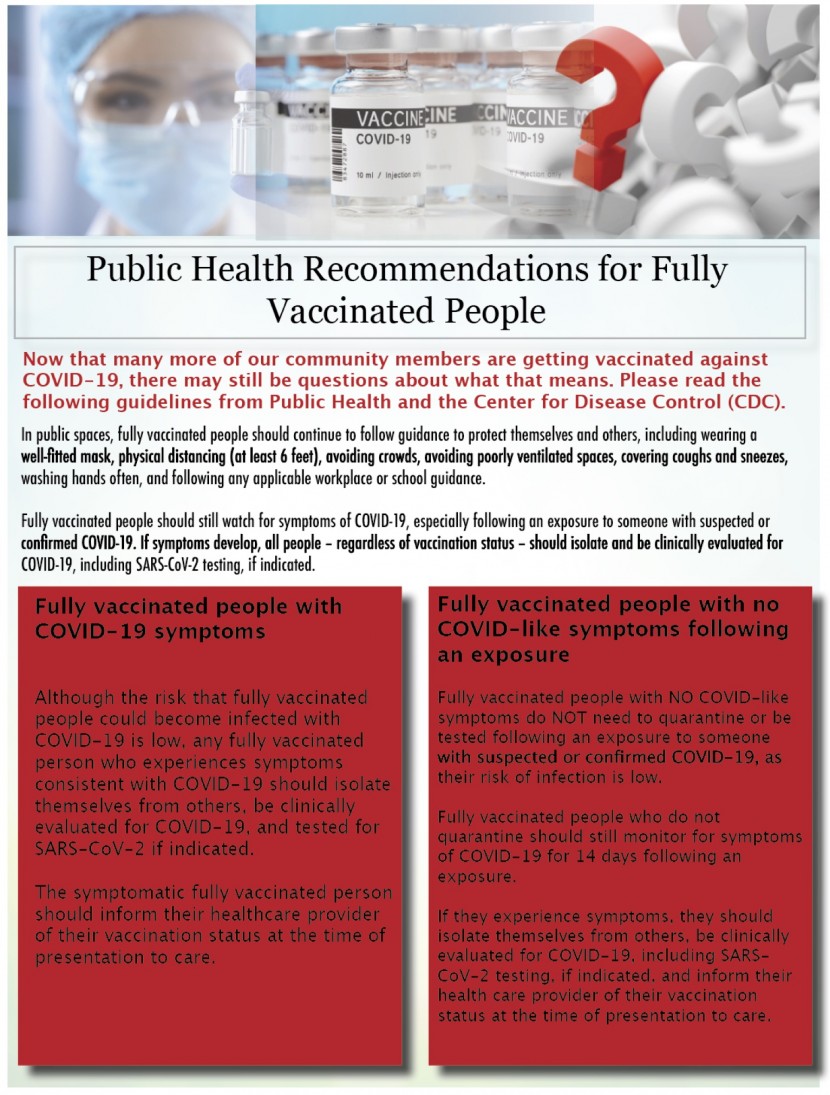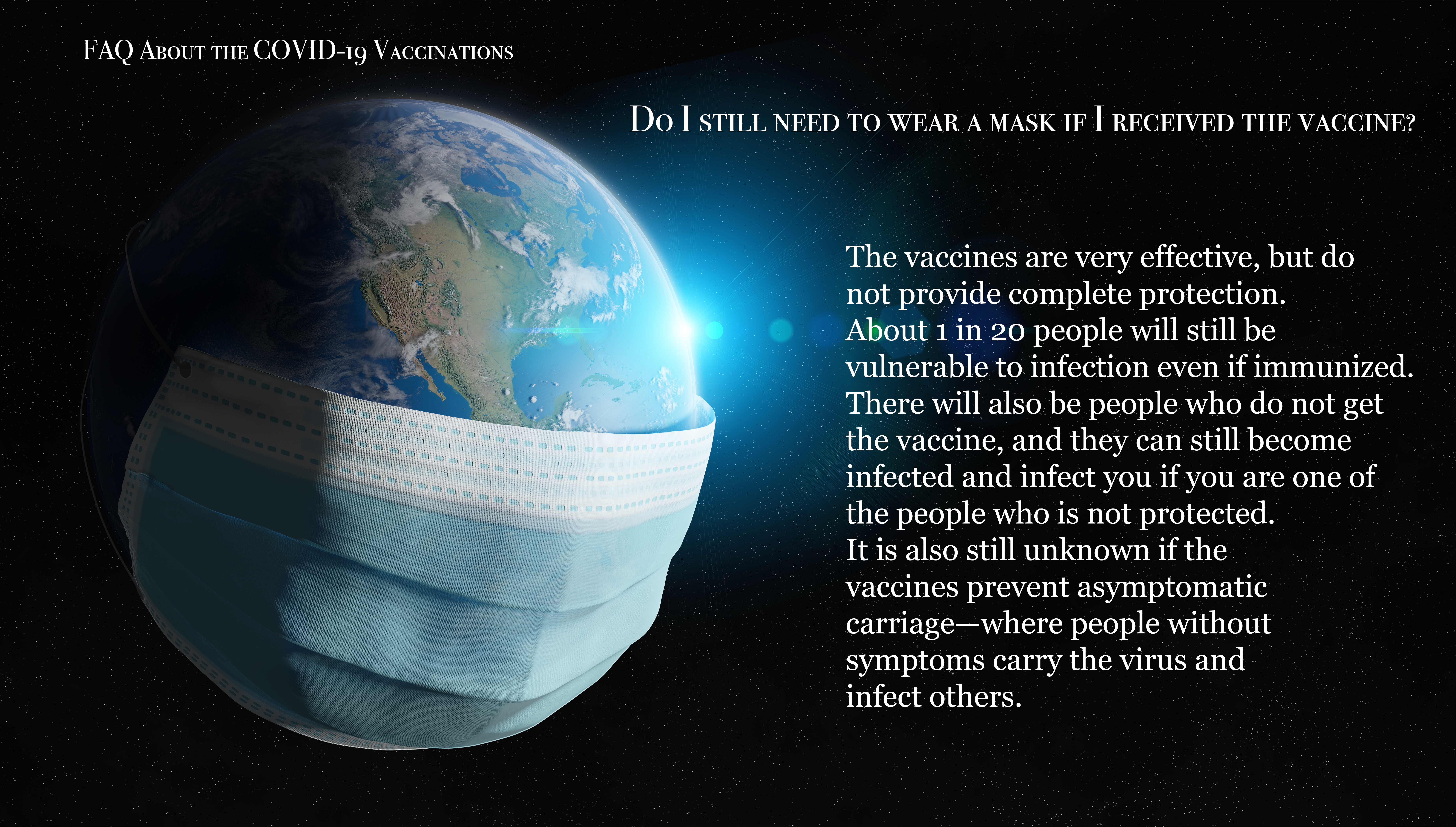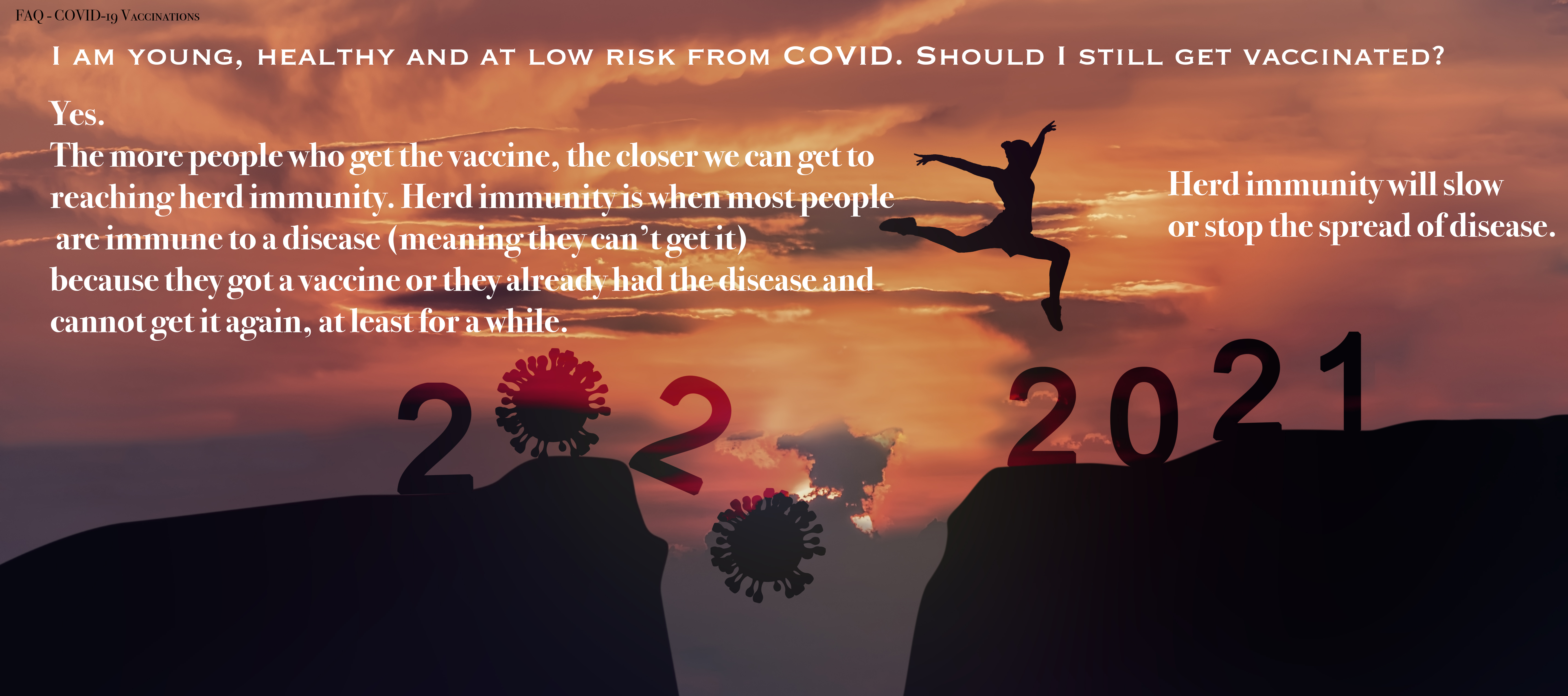
A Message from Mille Lacs Band Health and Human Services Public Health Regarding Vaccinations
April 7, 2021
Interim Public Health and CDC Recommendations for Fully Vaccinated People
Now that more and more of our community members are getting vaccinated, many of you still have questions. Can I still get COVID? Can I still spread COVID? Do I have to quarantine if I have been exposed — even if I have been vaccinated? These are all good questions.
Although less likely, you can still get COVID, even if you have been vaccinated. But having the vaccination means if you do get COVID, your symptoms will be less, there is less likelihood for hospitalization, and the risk of death is greatly decreased.
There are new strains, or variants, of the virus that spread more rapidly than the original virus. If you have been vaccinated, you may also still become infected, but you might not have any symptoms. This is called "asymptomatic." If this is the case, you can still spread the virus and/or the variants to others.
Key Points
This set of public health recommendations for fully vaccinated people will be updated and expanded based on the level of community spread of the virus and the variants, the proportion of the population that is fully vaccinated, and the rapidly evolving science on COVID-19 vaccines.
For the purposes of this guidance, people are considered fully vaccinated for COVID-19 approximately 2 weeks after they have received the second dose in a 2-dose series (Pfizer-BioNTech or Moderna), or approximately 2 weeks after they have received a single-dose vaccine (Johnson and Johnson (J&J)/Janssen).
The following recommendations apply to non-healthcare settings.
Fully vaccinated people can:
• Visit with other fully vaccinated people indoors without wearing masks or physical distancing
• Visit with unvaccinated people from a single household who are at low risk for severe COVID-19 disease indoors without wearing masks or physical distancing
• Refrain from quarantine and testing following a known exposure if asymptomatic
• Resume domestic travel and refrain from testing before or after travel or self-quarantine after travel.
• Refrain from testing before leaving the United States for international travel (unless required by the destination) and refrain from self-quarantine after arriving back in the United States.
For now, fully vaccinated people should continue to:
• Take precautions in public like wearing a well-fitted mask and physical distancing
• Wear masks, practice physical distancing, and adhere to other prevention measures when visiting with unvaccinated people who are at increased risk for severe COVID-19 disease or who have an unvaccinated household member who is at increased risk for severe COVID-19 disease
• Wear masks, maintain physical distance, and practice other prevention measures when visiting with unvaccinated people from multiple households
• Avoid medium- and large-sized in-person gatherings
• Get tested if experiencing COVID-19 symptoms
• Follow guidance issued by individual employers
• Follow CDC and health department travel requirements and recommendations

